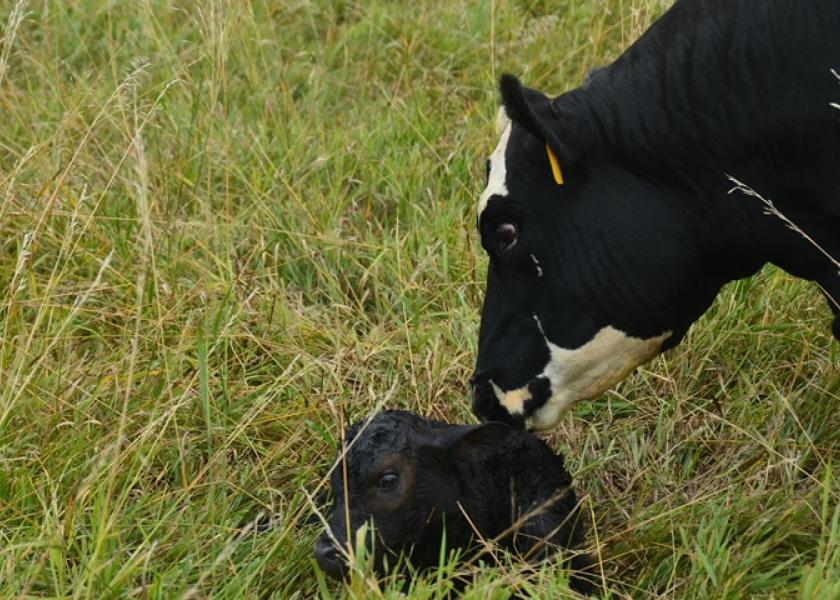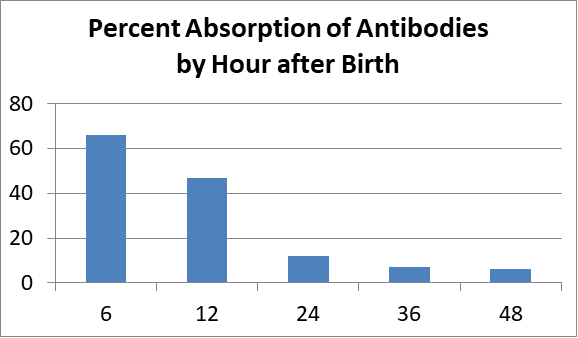Most Passive Immunity Occurs in the First Six Hours

Resistance to disease is greatly dependent on antibodies or immunoglobulins and can be either active or passive in origin. In active immunity, the body produces antibodies in response to infection or vaccination. Passive immunity gives temporary protection by transfer of certain immune substances from resistant individuals.
An example of passive immunity is passing of antibodies from dam to calf via the colostrum (first milk after calving). This transfer only occurs during the first few hours following birth. Research is indicating that successful transfer of passive immunity (the first day of life) enhances disease resistance and performance through the first two years of life including the feedlot phase.
Timing of colostrum feeding is important because the absorption of immunoglobulin from colostrum decreases linearly from birth. "Intestinal closure" occurs when very large molecules are no longer released into the circulation and this occurs because the specialized absorptive cells are sloughed from the gut epithelium. In calves, closure is virtually complete 24 hours after birth.
Efficiency of absorption declines from birth, particularly after 12 hours. Feeding may induce earlier closure, but there is little colostral absorption after 24 hours of age even if the calf is starved. This principle of timing of colostrum feeding holds true whether the colostrum is directly from the first milk of the dam or supplied by hand feeding the baby calf previously obtained colostrum.

Provide high risk baby calves (born to thin first calf heifers or calves that endured a difficult birth) at least 2 quarts of fresh or thawed frozen colostrum within the first 6 hours of life and another 2 quarts within another 12 hours. This is especially important for those baby calves too weak to nurse naturally. Thaw frozen colostrum slowly in a microwave oven or warm water so as to not allow it to over- heat.
Thawing colostrum in a high-power modern microwave at full power can cause denaturation of the protein. Therefore, if the colostrum is overheated and denaturation of the proteins occur, the disease protection capability of the immunoglobulin is greatly diminished. If at all possible, feed the calf natural colostrum first, before feeding commercial colostrum supplements. If natural colostrum is not available, commercial colostrum replacers (those with 100 g or more of immunoglobulin per dose) can be given to the calf within the first 6 hours and repeated 12 hours later.







